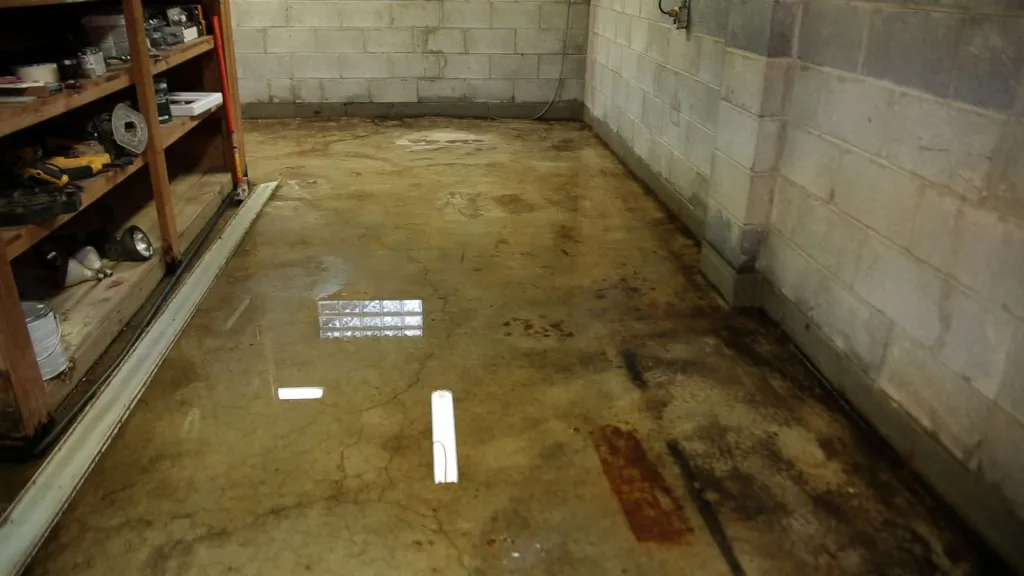While not every basement will experience flooding, certain elements can increase the chances of it occurring. Here are indicators that you may want to pay extra attention to in order to stay ahead of any potential flood issues before they begin.
Check out additional articles for basement flooding solutions and consider contacting a professional for help if you’re experiencing basement flooding.
1. Rising Water Levels Near the Foundation of Your Home

Source: usatoday.com
Rising water levels near the foundation of your home could be an indication that you are at risk for flooding.
If the ground around your home is saturated with water or if there is a lot of rain, the water can seep into any crevices around your foundation. This can cause a build-up of pressure in your basement, leading to flooding.
In extreme cases, this pressure can even cause the foundation to shift, resulting in structural damage and major clean-up costs.
2. Cracks in The Foundation or Walls of Your Basement
Cracks in the foundation or walls of your basement are a sure sign that you are at risk for flooding. This is because these cracks can allow water to seep into your home and cause damage. If left untreated, the water can build up and eventually lead to a flood.
It’s important to inspect your walls and foundation regularly to ensure that any cracks are filled in as soon as possible. This will help you to avoid any potential flooding caused by these cracks.
3. Poor Drainage Around Your Home
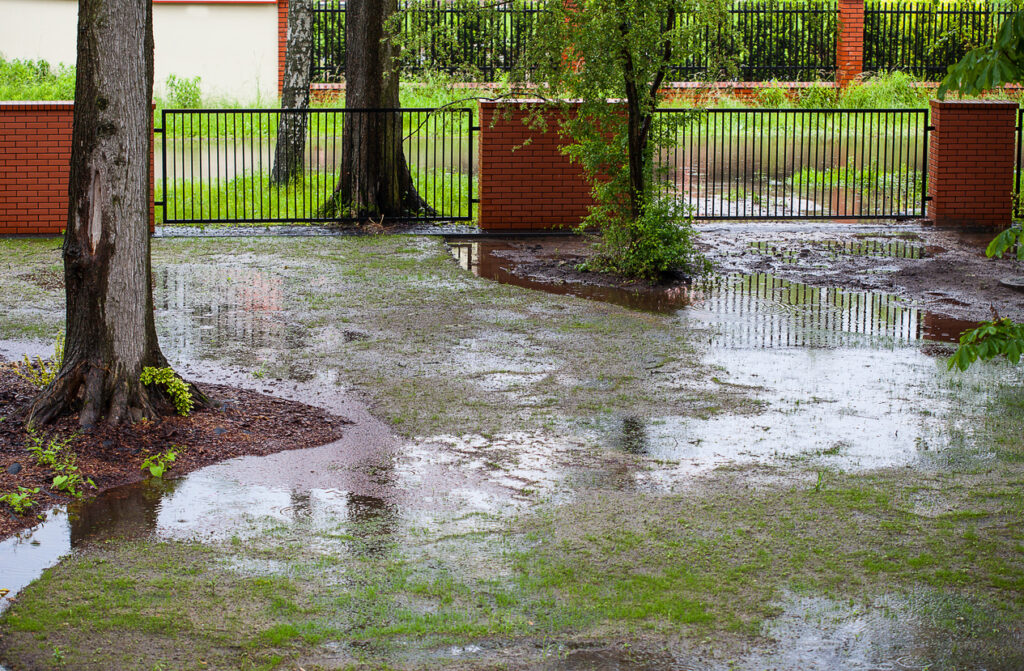
Source: disabatinoinc.com
Poor drainage around your home is another indicator that you could be at risk for flooding. If there is inadequate drainage, the water will not be able to flow away from your home and instead, it could pool around the foundation.
To avoid this, make sure that you have adequate drainage systems installed around your home and ensure that they are working correctly and free of any debris.
4. Clogged Gutters or Downspouts
Clogged gutters or downspouts can also be a sign that your basement may be at risk for flooding. The purpose of these systems is to carry away water from the roof, but if they become clogged with debris, the water can’t escape and instead, it can back up into your basement.
To ensure that this doesn’t happen, you should regularly check and clean out your gutters and downspouts to make sure that they are not blocked. You may also want to consider installing a guard over the gutters to prevent any debris from clogging them in the future.
5. Excessive Seepage Around Windows, Doors, and Other Openings
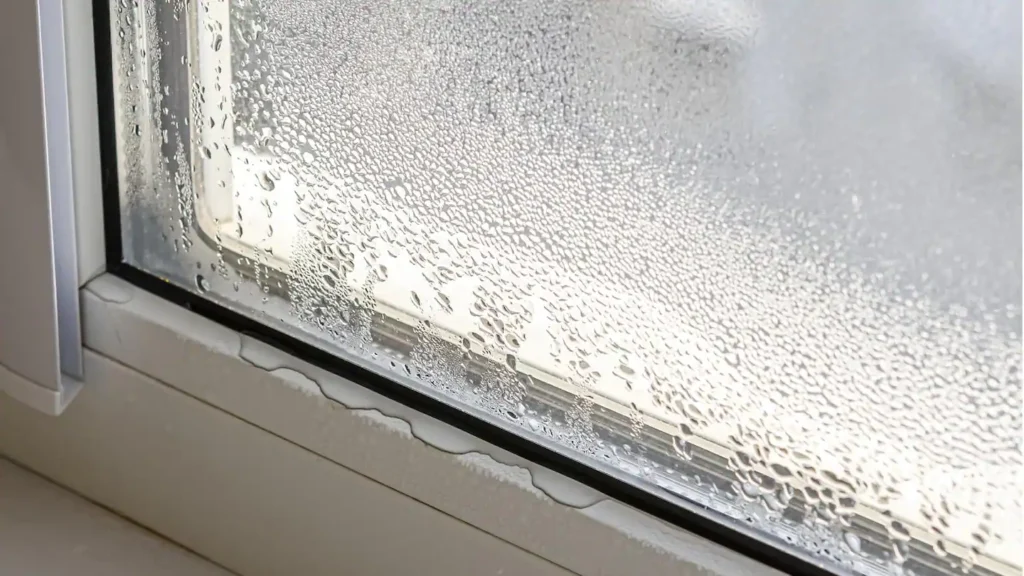
Source: angi.com
Excessive seepage around windows, doors, and other openings can be a sign that you may be at risk for flooding. If water is getting into these areas and is not able to escape, it can build up and eventually lead to a flood in your basement.
Checking the seals around these openings regularly is important to ensure that there isn’t any water seeping in. You should also inspect the windows, doors and other openings to make sure that they are properly sealed.
6. Water Stains on The Walls or Ceilings of Your Basement
Water stains on the walls or ceilings of your basement can be a sign that you are at risk for flooding. These stains could indicate that water is already beginning to seep into your home and build up, leading to a potential flood.
If you see water stains in your basement, it’s important to address the issue immediately. If necessary, hire a professional to inspect your home for potential flooding risks.
7. Unpleasant Musty Odors Coming from The Basement Area

Source: express.co.uk
Unpleasant musty odors coming from the basement area can be a sign that your home is at risk for flooding. This is because moisture and humidity in the air can cause the formation of mold and mildew, creating an unpleasant smell.
If you notice any musty odors, it’s important to investigate where they are coming from and take steps to address the issue. This could mean hiring a professional to inspect your home for potential flooding risks or taking action to reduce humidity in the air.
8. Musty Odors from Dampness in The Air
Musty odors from dampness in the air can also be a sign that your basement may be at risk for flooding. This is because high levels of humidity propagate the formation of mold and mildew, which can create an unpleasant smell.
To reduce the risk of flooding, you should ensure that the basement area is properly ventilated and address any areas where there is excessive moisture. You may also want to invest in a dehumidifier to help reduce humidity levels in the air.
How to Prevent Flooding?
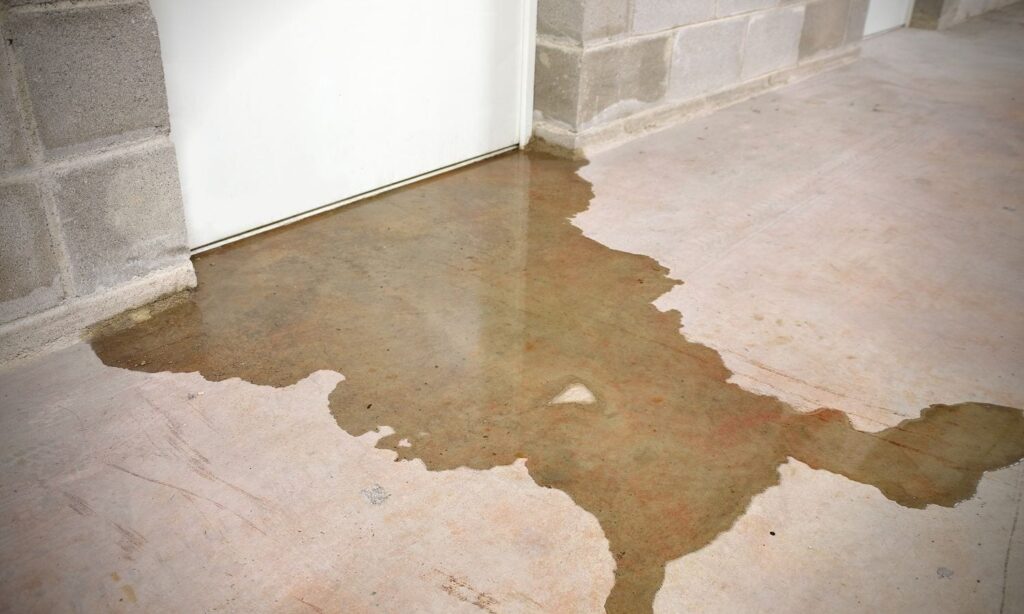
Source: woodard247.com
Here are some tips to help you protect your basement from flooding:
• Inspect and maintain your gutters and downspouts: Regularly check your gutters for debris, such as leaves and dirt, and ensure they are clean to allow for proper water flow. Make sure your downspouts are directing water at least six feet away from your home’s foundation to minimize the risk of water seeping into the basement.
• Install a sump pump: A sump pump is designed to remove water from your basement and prevent it from flooding. Ensure that it is properly maintained and tested periodically to guarantee its functionality when needed. Consider investing in a battery backup system for your sump pump in case of a power outage.
• Seal cracks and gaps: Inspect your basement walls and floor for cracks or gaps, and use hydraulic cement or waterproof sealant to fill them. This will help prevent water from seeping into your basement.
• Install a backwater valve: A backwater valve is designed to prevent sewage from flowing back into your basement during heavy rainfall. Installing one can significantly reduce the risk of basement flooding due to sewer backups.
• Improve landscaping and grading: The slope of your yard should direct water away from your home. If necessary, regrade your property to ensure that water flows away from the foundation. Additionally, avoid placing plants too close to the foundation, as their roots can cause damage and create pathways for water to enter.
• Elevate appliances and valuable items: Keep your basement appliances, such as your washer, dryer, and water heater, elevated on cement blocks to minimize potential water damage. Store valuable items in waterproof containers or on higher shelves to protect them from potential flooding.
• Install a water alarm: A water alarm can alert you if water is detected in your basement, giving you the opportunity to address the issue before it escalates into a flood.
Conclusion
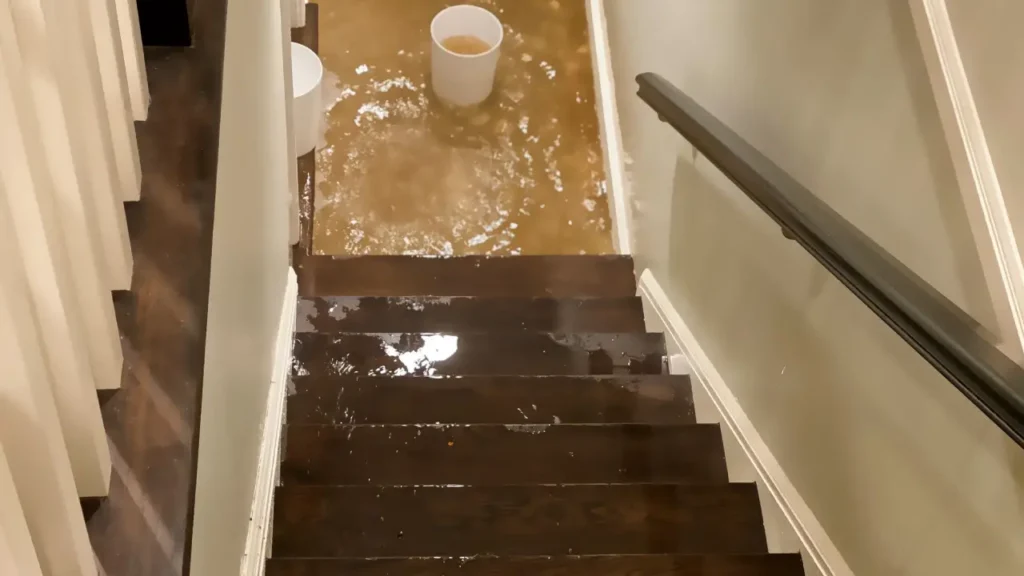
Source: bankrate.com
These are just a few of the signs that your basement may be at risk for flooding. It’s important to address any potential risks before they cause damage to your home. By being proactive, you can help prevent a flood from occurring in your basement.

